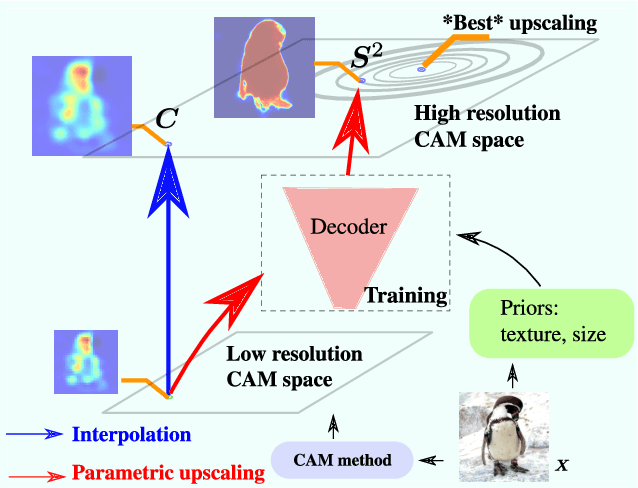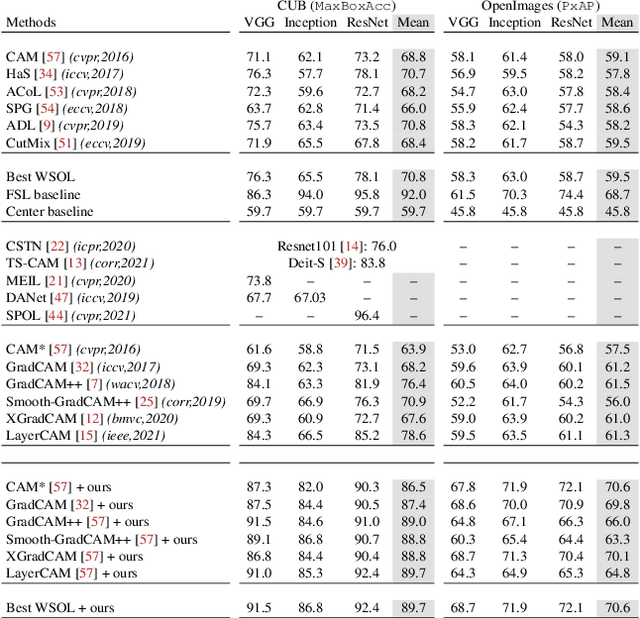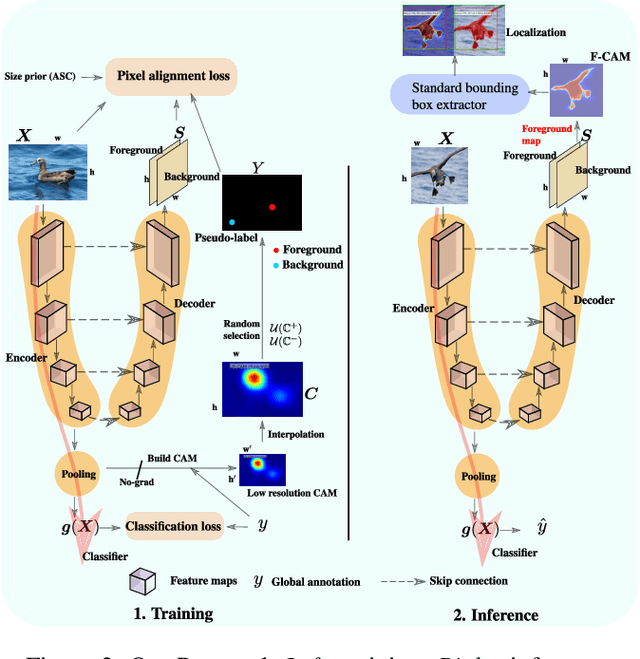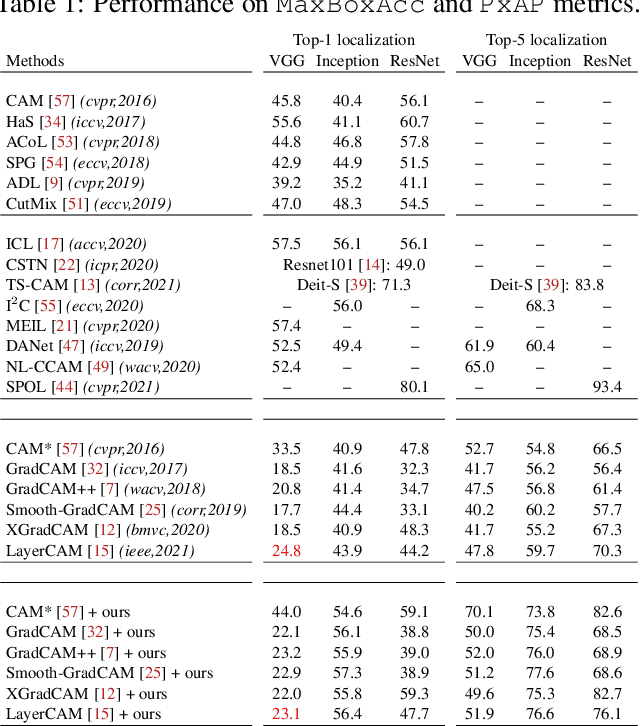F-CAM: Full Resolution CAM via Guided Parametric Upscaling
Paper and Code
Sep 15, 2021



Class Activation Mapping (CAM) methods have recently gained much attention for weakly-supervised object localization (WSOL) tasks, allowing for CNN visualization and interpretation without training on fully annotated image datasets. CAM methods are typically integrated within off-the-shelf CNN backbones, such as ResNet50. Due to convolution and downsampling/pooling operations, these backbones yield low resolution CAMs with a down-scaling factor of up to 32, making accurate localization more difficult. Interpolation is required to restore a full size CAMs, but without considering the statistical properties of the objects, leading to activations with inconsistent boundaries and inaccurate localizations. As an alternative, we introduce a generic method for parametric upscaling of CAMs that allows constructing accurate full resolution CAMs (F-CAMs). In particular, we propose a trainable decoding architecture that can be connected to any CNN classifier to produce more accurate CAMs. Given an original (low resolution) CAM, foreground and background pixels are randomly sampled for fine-tuning the decoder. Additional priors such as image statistics, and size constraints are also considered to expand and refine object boundaries. Extensive experiments using three CNN backbones and six WSOL baselines on the CUB-200-2011 and OpenImages datasets, indicate that our F-CAM method yields a significant improvement in CAM localization accuracy. F-CAM performance is competitive with state-of-art WSOL methods, yet it requires fewer computational resources during inference.
 Add to Chrome
Add to Chrome Add to Firefox
Add to Firefox Add to Edge
Add to Edge